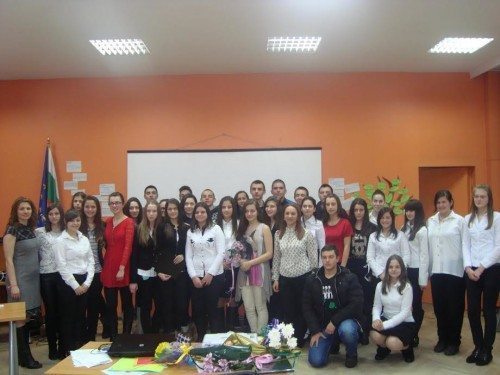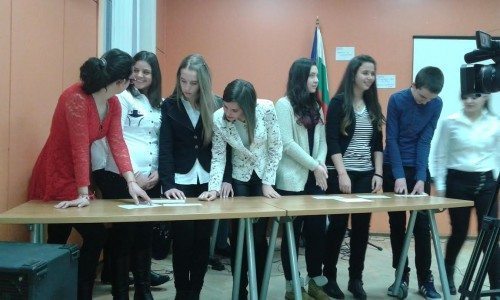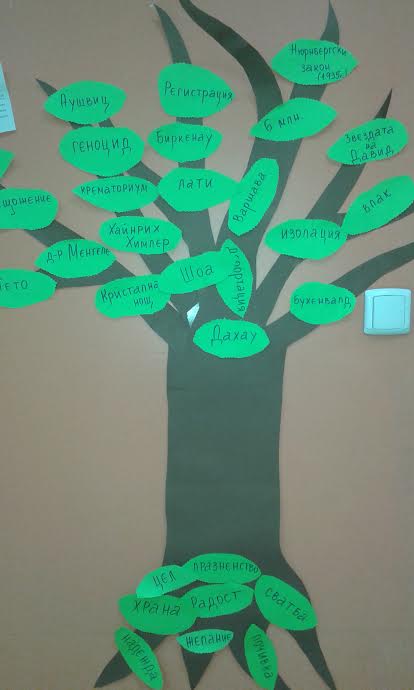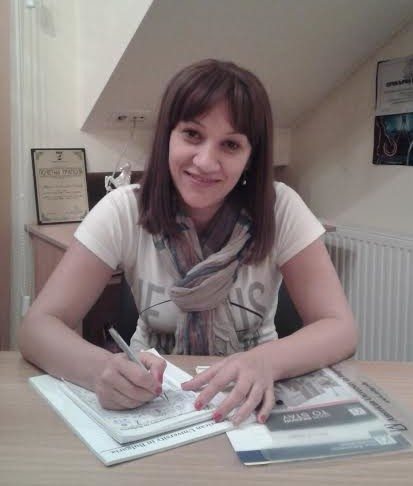Sonya Krancheva always knew that she would one day become a teacher. Inspired at a young age by her own history teacher, she envisioned herself in the classroom, not just sharing knowledge, but also mentoring, guiding, and kindling a love of learning in her students. For seventeen years and counting, she has done just that.
Today, Sonya teaches at the Bratia Kanazirevi High School in the picturesque town of Razlog, located in Bulgaria’s southwestern region. Razlog, home to about 14,000 residents, sits between the Rila, Pirin, and Rhodopes mountain ranges, drawing tourists year-round, but especially during the winter skiing season. Sonya teaches both 9th and 10th grade English as a foreign language as well as history for 9-11th graders.
The school has a small-town feel, but students develop a global perspective through a wide array of academic courses and diverse extracurricular activities. Sonya serves as the coordinator of the Student Parliament and the faculty advisor to the “Memory” History Club, which offers presentations about local history and national heroes. In addition, she works with the club to organize in-school exhibitions and discussions about the Holocaust.
Sonya first became interested in learning more about the subject as a student at St. Cyril and St. Methodious University of Veliko Tarnovo. After befriending a Jewish student, the two began sharing personal stories, and Sonya found herself wrestling with some of the details of her friend’s family history, in particular her grandparents’ experiences during the war.
Sonya believes that the more “we – my students, colleagues, and I – learn about the Holocaust, the more meaningful and fruitful the work we do.” So two years ago, she decided to take up the challenge of incorporating formal study of the Holocaust and social justice into her teaching. Students explore questions like “What does it mean to be a tolerant person?” and “What would I do as mayor of our town?” It came as no surprise to her that they found the resulting discussions among their most interesting and motivational.
Well-read and mostly self-taught, Sonya had the opportunity to participate in the pedagogical seminar Remembrance of the Holocaust: Prevention of Crimes against Humanity, organized by the Council of Europe in Sofia, Bulgaria’s capital, in May 2014. That fall, she also traveled to Poland for History-Memory-Education: Auschwitz a Year before Liberation, a conference presented by the Council of Europe, the Auschwitz-Birkenau State Museum, and the Pedagogical University of Cracow. Most recently, Sonya attended the Memorial Library’s inaugural summer seminar for Bulgarian educators this past July.
“The Library seminar gave me more confidence to teach the subject and to be a useful resource so I can inspire my students and motivate them to read and study,” she says.
Sonya believes that the most important Holocaust lesson she has taught is a “Memory Speaks” curriculum, an interactive public program she put together with a colleague. Many students and their parents attend, along with residents from Razlog and the wider community interested in learning more about the topic. It causes a ripple effect, with a growing audience engaging in important dialogue about history, memory, and social justice.
New projects in the works include a future exhibition in Razlog’s Town Hall about the Holocaust and social justice, student discussions on more advanced topics, a lecture for colleagues and parents, and a book of student essays and photos. Sonya also hopes to organize a seminar with teachers of history and philosophy in collaboration with the Department of Education in Blagoevgrad, so she can share her best practices and motivate others to take up the mantle of teaching and learning about the Holocaust.
“We should never forget about the crimes against the Jewish people. Social justice and remembrance are our challenges as teachers,” she says.

On Holocaust Remembrance Day in Bulgaria, 10th graders from Bratia Kanazirevi High School gathered for a public discussion about the Holocaust and issues of social justice at Razlog’s Town Hall.

Students reading and discussing excerpts from The Diary of Anne Frank as part of a “Memory Speaks” lesson.

As part of a “Memory Speaks” lesson, students participate in a Tree of Life history activity, placing leaves with Holocaust vocabulary at the top and words of faith and happiness at the bottom.

